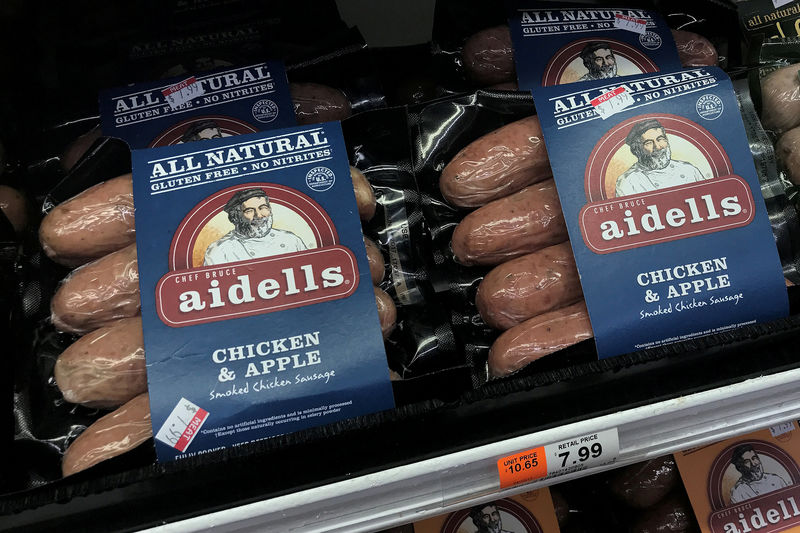Investing.com - Analysts at Bernstein released insights on the impact of GLP-1 drugs for weight loss in the US food and restaurant sectors on Sunday, after a recent Gallup poll revealed that 6% of US adults have tried GLP-1 drugs for weight loss, and 3% are currently using them.
This data, gathered from 5,577 US adults in early March 2024, represents the largest sample size to date. A second survey by KFF of 1,479 adults provided additional insights.
According to IQVIA, around 1.4% of US adults were taking drugs like Ozempic, Wegovy, Mounjaro, and Zepbound in May 2024, up from 0.9% the previous year. However, these statistics may be understated as they exclude sales from compounding pharmacies, which are temporarily allowed to sell GLP-1 drugs due to shortages.
Surprisingly, the usage is almost evenly split between men and women, and older patients are more likely to drop out from using these drugs compared to younger ones. Despite this, two-thirds of patients find these drugs effective. Notably, many older users don’t rate the effectiveness as highly as younger users, which might impact insurance coverage and long-term use.
Implications for US Food:
GLP-1 usage can modestly impact food consumption, particularly processed foods. About 40% of users reported reducing their intake of heavily-processed foods, although food sales in grocery stores are experiencing some recovery.
Implications for US Restaurants:
The higher-than-expected usage of GLP-1 drugs might be impacting restaurant visits, especially Quick Service Restaurants (QSRs). Last year’s survey indicated a 45-50% decline in visits to burger restaurants among GLP-1 users. The low drop-out rate among younger users, who are essential for long-term growth, is particularly concerning. The ongoing use of these drugs could further affect traffic to QSRs, which are frequented by lower-income consumers with higher rates of obesity and heart problems.
Overall, while the impact appears modest currently, it is crucial to monitor the evolving adoption of GLP-1 drugs, as they may significantly influence restaurant menus, innovation trends, marketing strategies, and potential growth opportunities.
Investment Implications:
- US Food Sector: Bernstein continues to rate Mondelez International Inc (NASDAQ:MDLZ), Simply Good Foods Co (NASDAQ:SMPL), McCormick & Company Incorporated (NYSE:MKC), Kraft Heinz Co (NASDAQ:KHC), Tyson Foods Inc (NYSE:TSN), Hershey Co (NYSE:HSY), and The Hain Celestial Group Inc (NASDAQ:HAIN) as "Outperform," while Beyond Meat Inc (NASDAQ:BYND), Kellanova (NYSE:K), JM Smucker Company (NYSE:SJM), Campbell Soup Company (NYSE:CPB), General Mills Inc (NYSE:GIS), and Conagra Brands Inc (NYSE:CAG) are rated "Market-Perform."
- US Restaurants Sector: The analysts rate Chipotle Mexican Grill Inc (NYSE:CMG), Wingstop Inc (NASDAQ:WING), Darden Restaurants Inc (NYSE:DRI), Restaurant Brands International Inc (NYSE:QSR), and Yum! Brands Inc (NYSE:YUM) as "Outperform." McDonald’s Corporation (NYSE:MCD), Starbucks Corporation (NASDAQ:SBUX), The Wendy’s Co (NASDAQ:WEN), and Domino’s Pizza Inc (NYSE:DPZ) are rated "Market-Perform."
Overall, despite the short-term volatility, Bernstein maintains a long-term positive outlook on Japanese equities, driven by the power of reform, reflation, restructuring, and reshoring.
